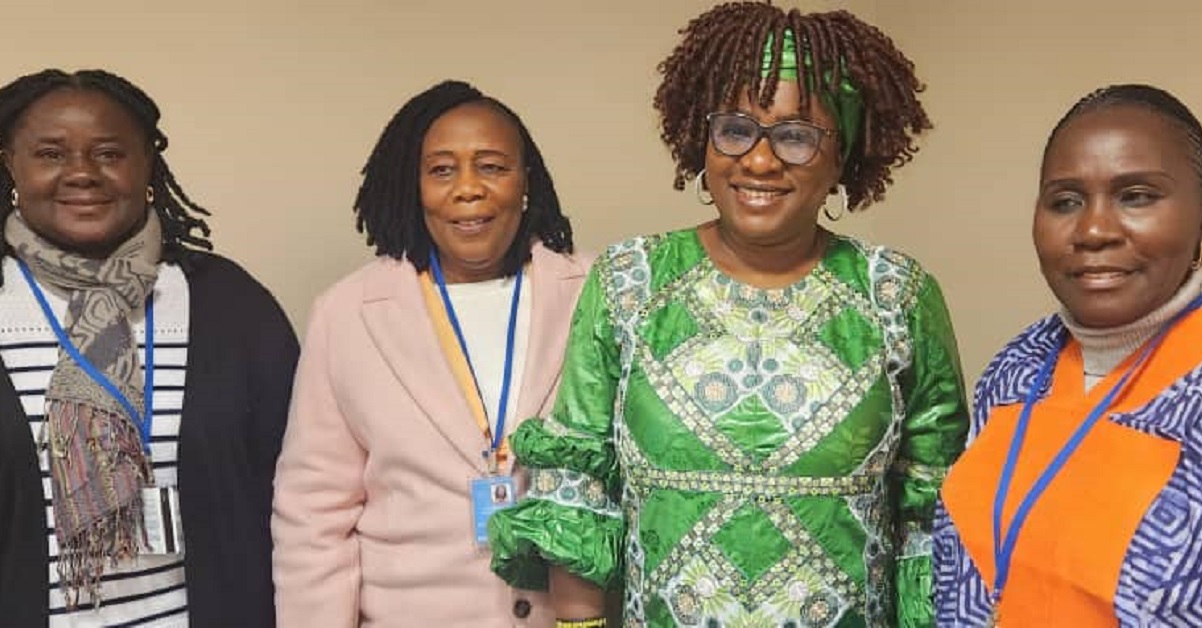Sierra Leone’s Social Welfare Minister, Mrs. Melrose Karminty, urged renewed global commitment to supporting widows at a side event organized by the Global Fund for Widows during the 68th Commission on the Status of Women (CSW68) in New York.
Her speech, titled “Widowhood, Self-Determination, Equality, and the Financial Empowerment of Widows as a Tool to Eradicate Poverty,” highlighted the ongoing struggles faced by widows. Mrs. Karminty emphasized the social, cultural, and economic barriers that prevent widows from having their voices heard, participating fully in society, and achieving self-determination.
“Widows are often isolated and blamed for their husband’s deaths,” she explained. “This stigma, discrimination, and grief compound the financial insecurity they face.”
The Minister positioned financial empowerment as a critical tool for achieving gender equality and improving widows’ lives. “Empowering widows financially is essential to restoring their dignity, enhancing self-determination, and fostering their inclusion in decision-making,” she stated.
Mrs. Karminty outlined the Sierra Leone government’s commitment to supporting widows. She credited President Bio with implementing financial empowerment measures to help widows achieve self-sufficiency and equality.
She cited the Gender Justice Laws, including the Domestic Violence Act, the Devolution of Estate and Property Act, and the Registration of Customary Marriage Act, as legislative examples promoting financial empowerment by ensuring widows’ inheritance rights.
She emphasized that her ministry has played a crucial role in assisting by engaging A Call To Business, a Microfinance Institution, to aid women, particularly widows, in opening bank accounts, thereby connecting them with various financial institutions to enhance their access to women-friendly microloans. Additionally, the ministry has enhanced women’s capabilities through training in financial management and business development skills, enabling them to better organize their finances and make informed decisions, ultimately maximizing profits.
Furthermore, the ministry has provided microgrants and disbursed cash to women, including widows, across several districts such as Port Loko, Kambia, Bombali, Falaba, Kono, Kenema, and Kailahun, to either establish or improve their businesses for the benefit of their families and communities. Initiatives such as the construction of Multi-purpose Trade Facilitation, Information, and Learning Centers for Women in border districts have also been undertaken.
Moreover, the ministry has offered financial assistance to various vulnerable groups of women, including widows, through programs like the Social Safety Net Programme, significantly contributing to the growth and development of women across the country.
She urged both local and international partners to renew their commitment to supporting widows, standing in solidarity with them, amplifying their voices, acknowledging their resilience and strength, celebrating their courage in overcoming adversity, recognizing their invaluable contributions to communities and societies, and providing financial empowerment to address gender disparities.
She reiterated her ministry’s dedication to advocating for issues vital to the comprehensive and sustainable advancement of women and ensuring their voices are heard within communities.











